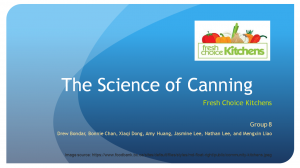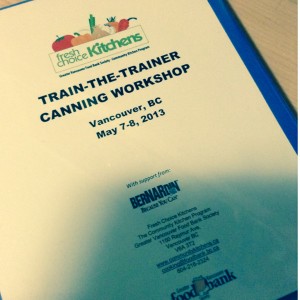During the last week of November, my team has been hard at work in finalizing the tasks associated with our project outcomes. The FAQ and scientific component for addition to the manual has been revised and would be ready to send off to our community partner along with our final report. The final report is close to being completed; we have yet to proofread and fine-tune specific sections, such as the discussion, before it is ready for submission. Furthermore, we have been fulfilling the expectations of our blog webpage. My team found it difficult to upload pictures and other media of our CBEL experiences online due to the nature of our project (mostly literature review) and not having the opportunity to carry out and capture our community service learning. Listening to other LFS 350 group’s plenary presentations during the previous week was helpful in assembling and delivering the final presentation. It has helped to highlight aspects that we should have considered while designing and carrying out our project as well as to suggest further community engagement activities for future groups continuing our work. We also had the pleasure of Shona and Darlene from Fresh Choice Kitchens joining our class for our final CBEL presentation. We appreciate that they were able to take the time to witness the product of our combined efforts over the course of three months. We are extremely grateful to Shona, Diane and Darlene for their time, resources, patience and feedback we received in making this project a success!

After combining the interview responses with the results from our literature review into our discussion, we can conclude that food literacy does play a role in contributing to greater food security through empowering individuals in the community to improve their health by seeking greater resilience and social adversity. This is agreed by most of the interviewees who cited that home canning motivates others to preserve backyard grown fruits and vegetables, learn food preservation techniques and have a greater consciousness with regards to food consumption. Our literature review has also provided support for our findings with a notable article by Andress et al. (2011), who noted household’s increasing interest in long-term home preservation during times of food insecurity and the emergence of NCHFPP, a website that offered canning techniques and a self-study canning course that was created in response to the demand. Many of the registers cited food culture, food safety, home gardening, health & nutrition and economic self-sufficiency as motivators for participating in the online canning course; hence this implies the public’s interest to maintain food security through increasing food literacy (Andress et al., 2011). A significant aspect that emerged during our research and interviews is the importance of considering the cultural appropriateness of the canning workshops for the community. Incorporating culturally appropriate recipes is essential as it increases the application of techniques learned at home, which thereby promotes food security. Our team also drew up a list of recommendations that may be beneficial for similar projects with Fresh Choices Kitchens in the future. Some of the recommendations include developing different versions of the canning manual with different languages and corresponding cultural foods and uploading an electronic version of the FAQs and tutorial videos online. Future LFS 350 should organize a focus group, preferably with canning workshop participants, instead of individual interviews in order to gather more detailed responses and save time.
Each member of my team had a rewarding CBEL experience. Some of us reflected on learning to listen to the feedback and what the community needs rather than what you think they need, which in hindsight, could have reduced the number of miscommunications and problems when developing our research question. Some found the interviews a very insightful experience as listening to the community facilitators opens up further possibilities of community engagement. Others appreciated the opportunity to build social relationships with group members and the community through flexible learning. Despite having to overcome the hurdles, our team learned quite a lot from our project, community partner and each other; we truly enjoyed our CBEL experience and would not have traded it for another project!







